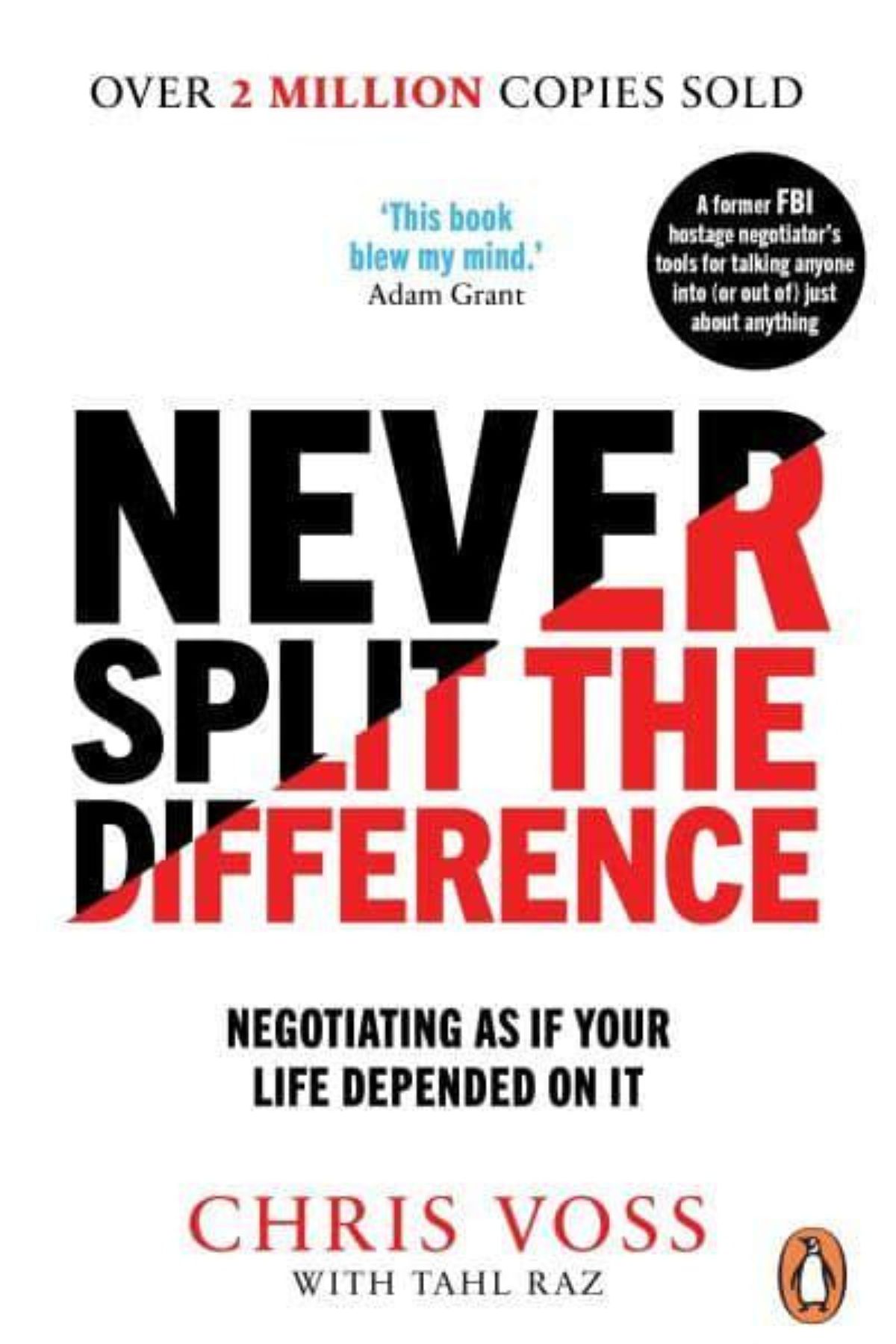The black swan rule is don’y treat others the way you want to be treated; treat them the way they need to be treated.
- "Christopher Voss"
Negotiation is a skill that I have long wanted to learn, but I have not had the time to delve into it deeply. However, as I prepare for a new job in consulting, negotiation skills have come back into my sights. In search of a book to teach me this skill, I came across Never Split the Difference, written by Christopher Voss, a former FBI hostage negotiator.
Never Split the Difference does an excellent job of explaining negotiation best practices that Christopher Voss has summarized from his 25 years of experience as a hostage negotiator, which he later served to many business clients after leaving the FBI. I particularly liked the way Christopher structured each chapter, explaining the techniques alongside real-life case studies. Each chapter also includes a summary of the lessons learned, which refreshes your learning.
Negotiation is essentially about communicating with others in a particular way and truly understanding them. This book offers a new angle towards that matter. Not only have I learned new negotiation techniques, but I have also learned a negotiation mindset that is applicable to various situations.
All the negotiation techniques are based on a principle of giving the counterpart an illusion of control or winning the deal and making them feel they are truly understood. I found them intriguing, some of which I have unconsciously used before. For example, mirroring (isopraxism), a fundamental technique, simply refers to repeating the last three words of the counterpart, which amazingly helps build trust and acquire more information from others. Labelling gives others' emotions a name, which gets you close to someone without asking external factors one knows nothing about. Psychology theories are also involved in the negotiation. The application of theories such as loss aversion and anchoring could help one make a great sales deal or salary increase.
Knowing negotiation techniques is not sufficient to help one win. One needs to develop a negotiation mindset. Bias, assumption, and one's own experiences are often the roadblocks towards understanding. As Chris said, "you should engage in negotiation with a sense of discovery. Your goal at the outset is to extract and observe as much information as possible." In other words, one needs to uncover the unknown unknowns. Sympathy, or statical sympathy named in the book, also plays a vital role. I sometimes mistakenly regard sympathy as agreeing with others' beliefs or giving them a huge; however, being sympathetic, in Christopher's words, is to understand the feelings and mindset of another in the moment and also hearing what is behind those feelings. Also, conflict might seem unpleasant, but one needs to embrace regular and thoughtful conflict as the basis of effective negotiation and life.
Never Split the Difference offers a handful of advice. Applying and practicing them is vital. To test if they work, I applied forced empathy, which makes the other side see one as a person when I purchased a shirt. At the front counter, I told the old lady the exact words used by Chris, "Hi, I am Siyuan, what is a Siyuan's discount ?" She paused for a second and then replied, "Sorry, our brand doesn't do discounts, but you can get points by registering as a member." And then in the subsequent talking, she told that the brand will increase its price by 15% and today is the last day. In other words, I saved 15 pounds. Looking back, even though I did not get a discount, I obtained important information and could feel the lady becomes more relaxed and friendly towards me after I said that.
Purchasing some products, asking for a pay increase, or even discussing with your partners, almost every situation in one's life involves some form of negotiation. It is a lifetime skill that will help one uncover the black swan and thrive.
